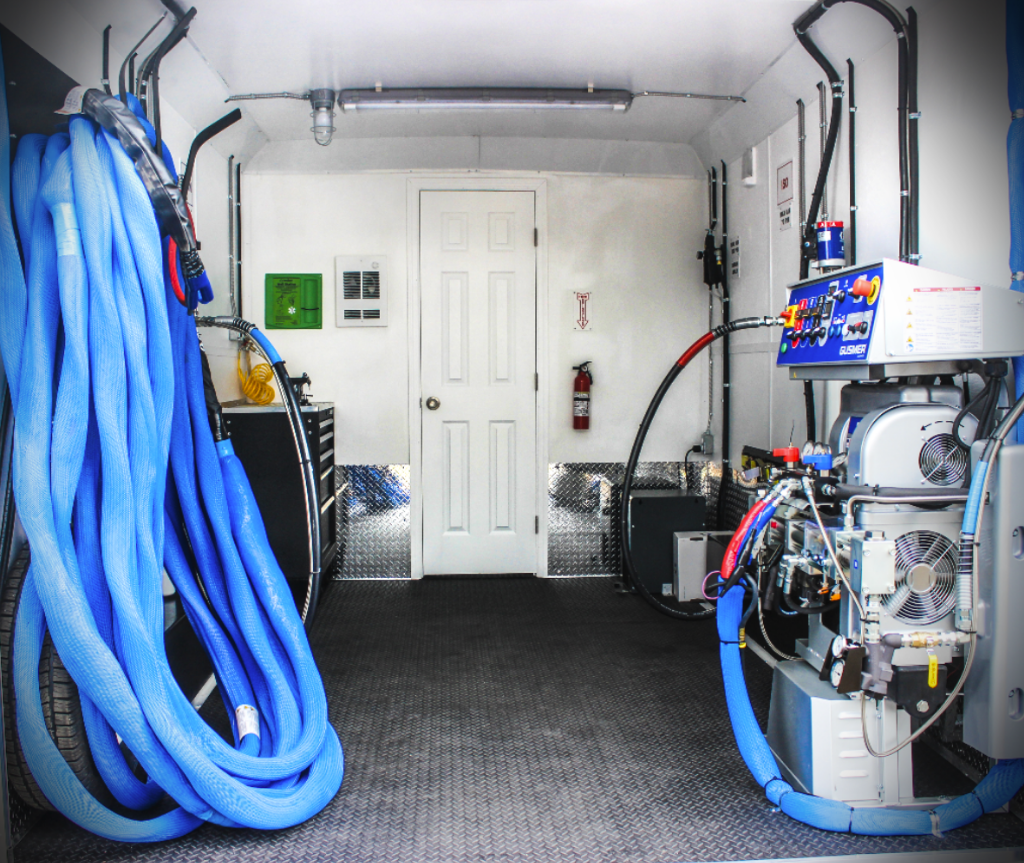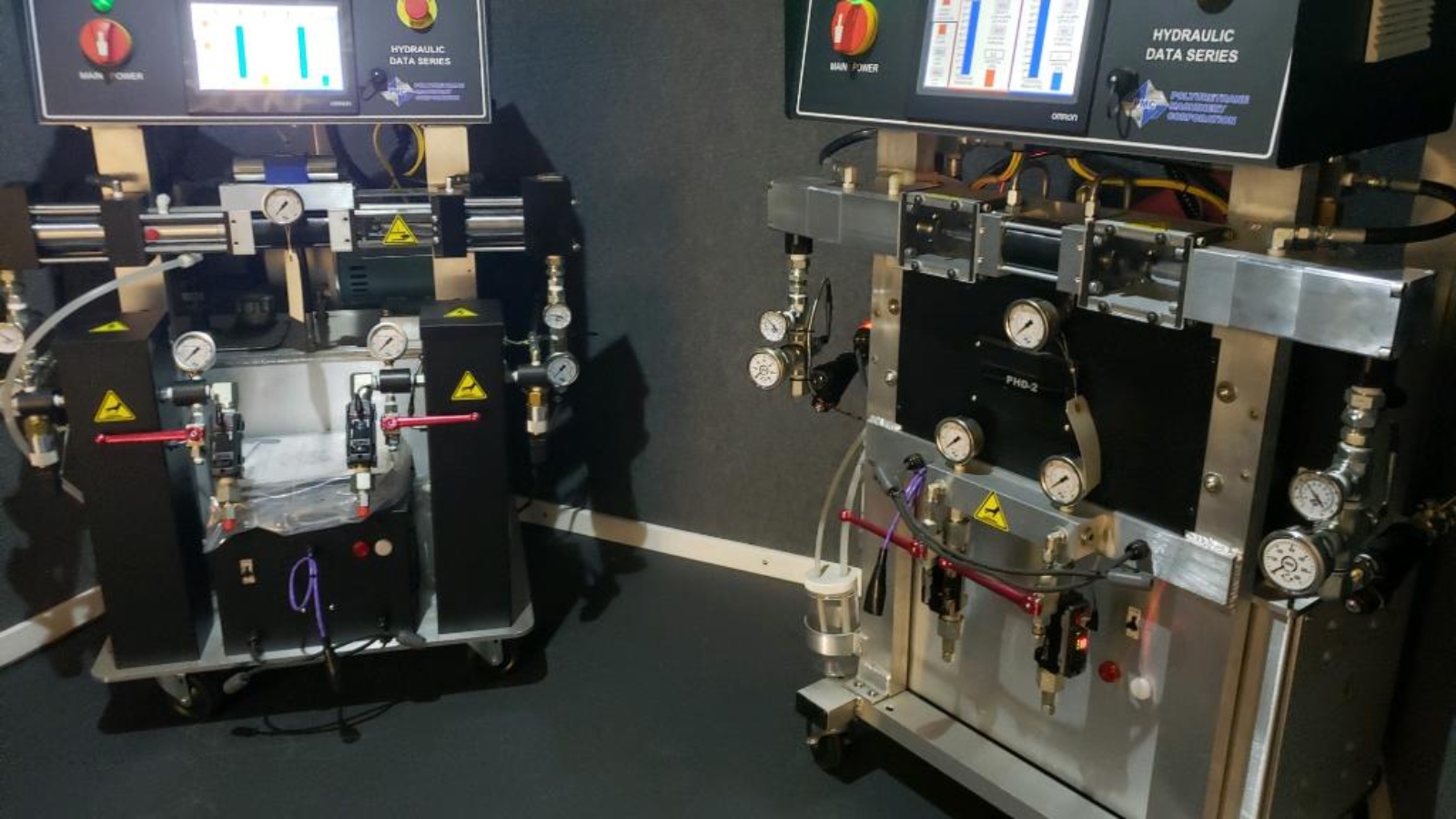
A company that deals with spraying insulation and coating materials must make the correct equipment selections. Understanding the various forms of spray machinery is crucial for performing tasks properly since the equipment or instrument used to complete a task is frequently a deciding factor.
Because they require different amounts of pressure to be applied, coating equipment and spray machines are not equivalent in their capacity to operate with specific materials. Lower-pressure machines are typically solely used to spray foam, but most high-pressure rated equipment could be interchangeable regardless of whether it is used to spray polyurea or foam. Foam application can be done by machines with pressures between 800 and 2000 psi, whereas the optimum material dispersion for coatings requires pressures of at least 1850 to 3500 psi. The caveat in this situation is that lower pressure machines are only appropriate for spray foam because they are not used with lengthy hoses, as those need higher pressure to spread the material adequately.
Air-Driven and Pneumatic Machinery
Although air-driven or pneumatic equipment has been around for more than 60 years, technology has advanced significantly in overall efficacy. These machines’ technology is based on a simple two-component setup: two pumps driven by an air motor that operates within a specific pressure ratio. How much material a machine can disperse in terms of fluid pressure is correlated with its psi rating. The machine can deliver 25 psi of fluid pressure for every pound of applied air pressure if the pressure ratio is 25:1.
Pneumatic systems will evenly disperse the application as long as the host has a large enough diameter to discharge the required material. The fact that this technology has been around for a long time and is quite reliable is not surprising, but a clear disadvantage is that it does not allow for effective pressure monitoring, burdening the operator with the responsibility of checking the foam for proper application and distribution.
Due to its relative simplicity and reduced price, pneumatic equipment is frequently the first choice for newly established enterprises. Yet, when business expands and bigger jobs become necessary, more output machinery becomes necessary.
Hydraulic Apparatus
Hydraulic equipment, which was first used to apply polyurea coatings and dual-component foam in the 1970s, operates chemical proportioning pumps using hydraulic power. Some of the systems even have a valve that changes the sprayer’s direction. The machine’s most enticing feature is its quick pump switchover, which causes very little pressure loss as the direction changes.
The hydraulic application enables improved monitoring techniques to ensure that the chemical combination is uniform and proportional during application because the chemicals used in spray foam need to mix before application. If the system detects improper operation or inadequate mixing, it immediately shuts down to stop the distribution of defective products, allowing the operator to address the problem rather than use subpar product.
The heating point for polyurea and foam chemicals must be between 100 and 180 degrees Fahrenheit. These higher-quality hydraulic systems ensure that high-quality foam is added by heating the chemicals to the required temperatures and maintaining that temperature with heated hoses.
Using a hydraulic machine to spray foam has been proven to be particularly useful when it comes to large-area applications, such as coating broad rooftops, since it allows for outstanding heat performance and maximum output.
Electric apparatus
Electric spray systems are perfect for contractors looking to buy polyurea equipment because they provide a fantastic performance value when high throughput is needed for coating or spray foam application jobs.
Electric machines have the advantage of maintaining proper stall pressure levels when the equipment is on but not in use, as well as keeping a constant pressure as the spray or coating applicator is triggered.
The two mixing pumps are kept at the same fluid pressure by the motor control technician, who also manages the electrical current flowing through the motor. As the pumps and applicator orifices are comparable, the proportioner must operate at roughly the same pump pressure for a 1:1 chemical ratio to be achieved. In order to prevent the user from spraying faulty foam or coating, modern equipment will quickly shut down if the pump pressures start to drift out of balance and lose sync. An error message will also advise the user of the reason for the shutdown.
Electric appliances’ heating feature is also quite advantageous. Electric spray foam systems require high primary heater temperatures to successfully heat the ingredients to the required heating point. While most contractors rely on hoses to keep the product’s heated temperature constant while it is being sprayed, cooler temperatures might cool down insulated hoses, necessitating their warming before they can actually perform as intended. A lot of time would be lost if the machines had been idle for a long time before the hoses reached the point at which they could maintain the required heat temperatures.
Electric systems are not only dependable, but they may also last a very long time with adequate maintenance. They require investment and additional expenses for upkeep, but they will be less expensive than purchasing a brand-new piece of machinery. Such systems have a history of lasting 15 to 25 years.
Conclusion
The PMC polyurea machine and the Graco polyurea machine are two options to check at if you’re looking for a polyurea spray machine for sale. Think about the Graco or PMC foam machine for spray foam insulation. You may find various solutions here that are appropriate for all different types of jobs whether you’re seeking for new or secondhand polyurea spray equipment for sale.
Contact ArmorThane for more info on purchasing this equipment.

